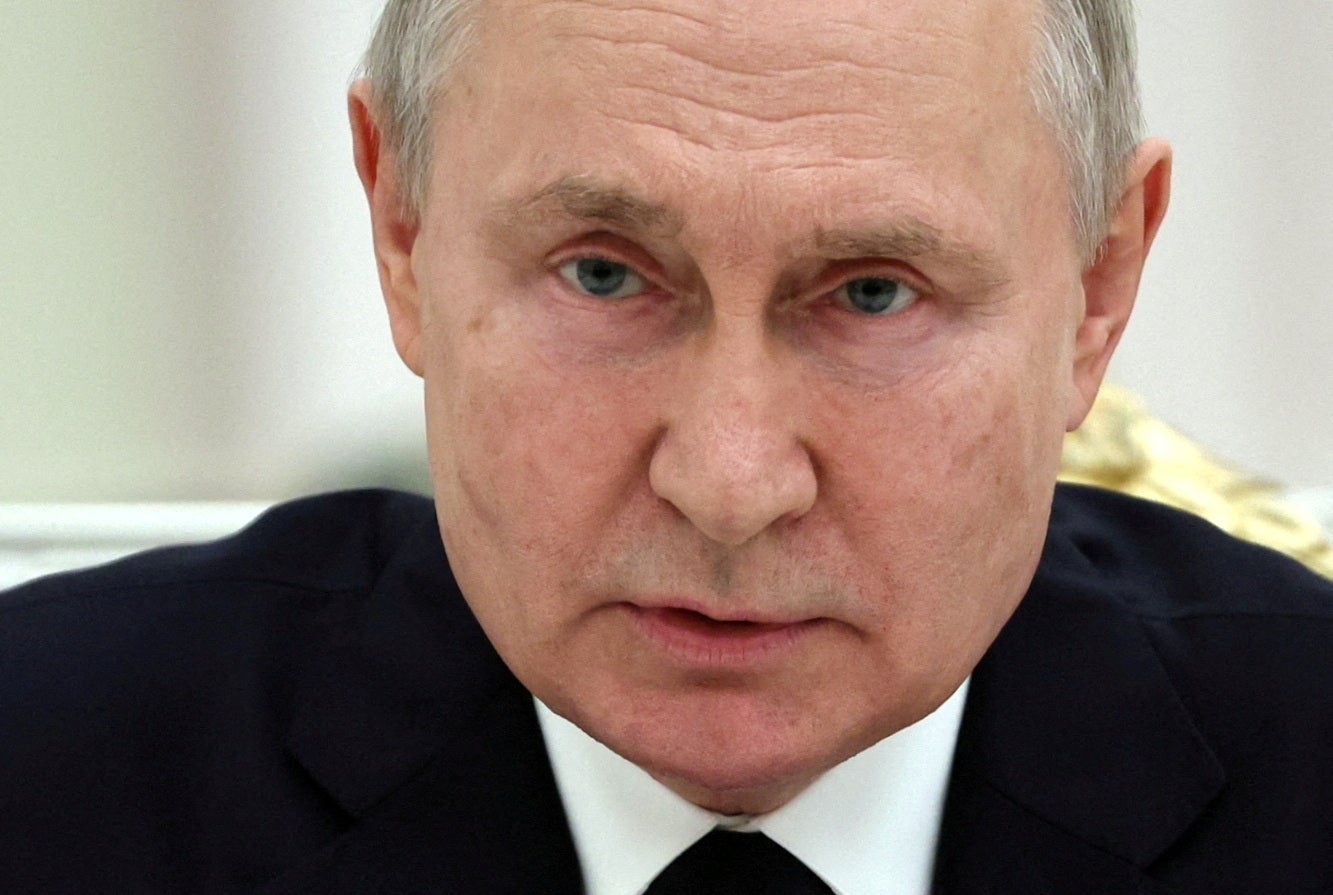This is now a crisis for Putin – the coming days will be decisive
As Ukraine’s top adviser to president Volodymyr Zelensky tells The Independent that Moscow must be bullied into a peace negotiation, Mark Almond unpicks what this means for Putin


The Ukrainian surprise attack into Russia itself has now lasted for more than a week. The longer Kyiv’s forces push forward, the more political – as well as military – headaches mount for Vladimir Putin. The inability of the Russian army to reverse the seizure of Russian territory and prevent a refugee outflow from the area is moving from an embarrassment to a crisis.
And now Ukraine’s top adviser to president Volodymyr Zelensky, Mykhailo Podolyak, has told The Independent that Western partners knew about their incursion into the Russian Kursk region – and believes Moscow must be bullied into a peace negotiation.
“When the war proceeds into the territory of Russia, they are certainly scared,” he said. “They are shocked. This has a significant impact on the psychological state of Russia. It is also a tool of influence.”
How President Putin handles the coming days will determine whether or not the military situation – as well as politics closer to home in the Kremlin – will slip from his grasp.
Not even Russia has limitless trained troops on standby to fill gaps in the line. But its real problem is at the top. Competent generals and staff officers are essential to improvising on the battlefield.
Putin has often been slow to make personnel changes, keeping trusted associates in post even when they have failed to live up to their responsibilities. Loyalty has trumped competence.
In recent weeks, heads have rolled – but generally sideways – among veteran post-holders in the ministry of defence; not least the former minister, Sergei Shoigu. But the chief of the general staff, Gennady Gerasimov, is still in post two-and-a-half years after his invasion plan hit the buffers. The border hole exploited by the Ukrainians shows he had not planned for such a contingency.
Putin’s turn to the security services to take charge of the crisis zone shows his lack of confidence in his generals. The new crisis manager, Alexei Dyumin, is a security and intelligence veteran, who once served as Putin’s own bodyguard.
He seems so trusted by the “vozhd”– the boss – that it is rumoured he could be a possible successor to Putin. His boss is getting no younger and may well wish to avoid the fate of doddering autocrats by installing a trusted successor to secure his retirement when the time comes. If Dyumin can master the Kursk situation, then his political star could soar.
That will put the generals’ noses out of joint.
The security services and the army have long been rivals in Russia. But the way in which the Marshals of the Red Army hustled Stalin’s secret police chief, Beria – and his closest aides – into oblivion in 1953 should remind us that even when secret policemen have unlimited power over individuals, they don’t have the muscle to take on tanks.
Putin’s practical military options seem to be to deploy massive force, but that takes time to assemble. For the moment, the Russian air force has been the main counter-force.
It has been launching heavy airstrikes, but nimble Ukrainian veterans have developed the survival skills to dodge them. They are taking losses, of course, but until the Russian army sends in tanks and infantry, the Kremlin can’t reassert its control over the region.
To date, some 180,000 people have been evacuated by the local authorities in the Kursk region. As that number swells, the Kremlin will face the problem of housing and feeding them, putting children into temporary schools as the academic year begins in two weeks, and so on.
There is a received wisdom that as long as Moscow itself remains passive, Putin faces no threat to his authority. But as Yevgeny Prigozhin’s mutiny last summer and the absence of popular resistance to the Ukrainian invasion has shown, the road to Moscow can be traversed very quickly without resistance.
A peasants’ revolt by people once passively loyal to Putin cannot be entirely ruled out. Once their president can no longer guarantee security, then rural dissent could spread – causing more headaches for the security authorities already stretched by the Ukrainian attack.
The military setback and internal problems resulting from it make things awkward for Putin’s diplomatic options.
Russia and Ukraine had been quietly talking through proxies such as China about a possible ceasefire. Their leaders want to be seen by their peoples as negotiating from strength. President Zelensky’s position has dramatically improved, while Putin’s has weakened.
Peace talks, which Russia never admitted were taking place, have now been officially declared dead by the Kremlin. But reports of their demise may be exaggerated.
The recent spy-swap deal showed that America and its allies, such as Germany, still have classic Cold War back-channels to Moscow.
With the Middle East boiling up to a crisis that would put even the Ukraine war into the shadows, Putin’s role as a potential intermediary between his ally, Iran, and an old partner, Benjamin Netanyahu, could give him cards to play in Washington as the White House tries to calm the situation there.
But Putin is no longer master of the international chessboard. The more he has to intensify a defensive war with Ukraine, the weaker his position gets at home – as well as abroad. This makes him a less valuable interlocutor – because he may not be able to deliver on a bargain. Waging your own war is a full-time job.






Join our commenting forum
Join thought-provoking conversations, follow other Independent readers and see their replies
Comments